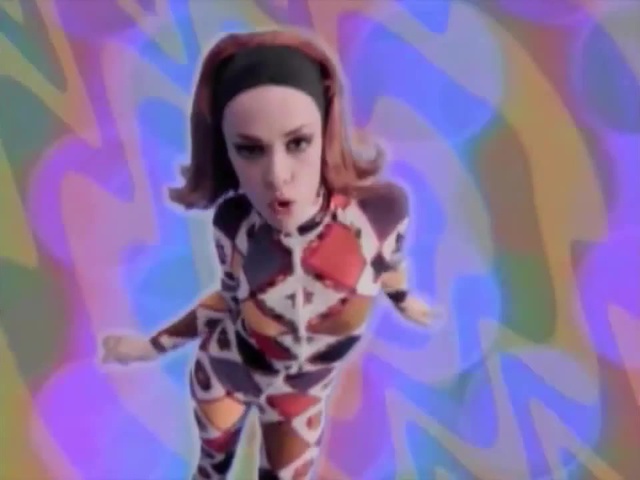Deee-Lite was an American house and club/dance music group, formed in New York City. The group's best-known single is "Groove Is in the Heart", which was released from their 1990 debut album, World Clique, and was a Top 10 hit in multiple countries. In December 2016, Billboard ranked them as the 55th-most successful dance artists of all time.
The band began in 1986 as a duo in New York City with Lady Miss Kier (born Kierin Magenta Kirby) primarily on vocals and Supa DJ Dmitry (born in Ukraine as Dmitry Brill) as the DJ, but became a trio when Jungle DJ Towa Tei (Japanese-born Dong-hwa Chung) joined the group in 1988.
Initially, Kier and Dmitry performed their songs monthly in numerous downtown NYC nightclubs from 1986 onwards. In 1987, Kier bought the Akai sampler, which influenced their sound tremendously, hence why she named their production company "Sampladelic". From the band's inception, Kier designed the posters and club invites and was also the graphic designer for all three albums and 12" singles. The band played in both hip-hop and house clubs, and both gay and straight clubs, including Wigstock and opening for Native Tongue Movement's De La Soul and Jungle Brothers. As described in Rolling Stone, "they were drawing vivid, multiracial, pan-sexual crowds...". Part of the band's appeal was its inclusiveness, as noted by Mademoiselle magazine "as a group, they're a festival of individuality; as a band, they're a party anyone can attend". In these early years, their live shows garnered a steady following and attracted Towa Tei as a fan.
Thereafter, Towa sent Kier and Dmitry a bedroom DJ tape he'd made and they realised he, like them, also enjoyed a fusion of funk and techno. Towa and Dmitry began jointly programming the band's computer. Although Towa did not play any instruments or play them any songs he'd written, he was an avid record collector and added a slickness to their process by adding in samples. They invited him to join the group in 1988 and together the three produced their first album. Kier wrote all the lyrics and melodies, and also coordinated reaching out to Bootsy Collins to get him involved in sessions. Dmitry played guitar, keyboard and bass, and Towa gathered samples for fill-ins and grooves. Bootsy Collins introduced them to The Horny Horns, Fred Wesley and Maceo Parker, Mudbone Cooper, and Bernie Worrell, as well as, helped put their touring band together. Together the trio produced the first and second Deee-Lite albums under their production company Sampladelic.
-----------------------------------------------------------
More Music to Dance...






















































